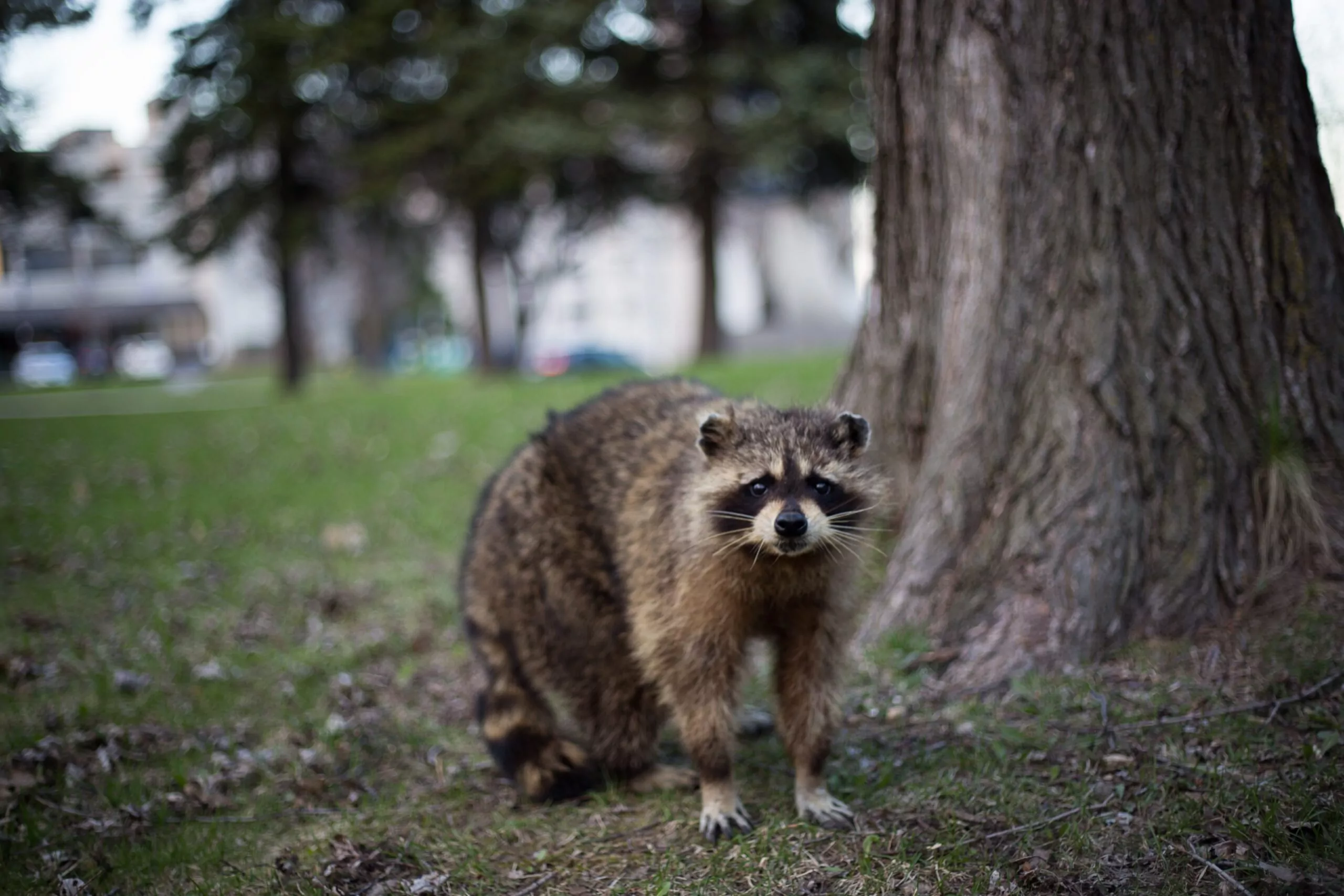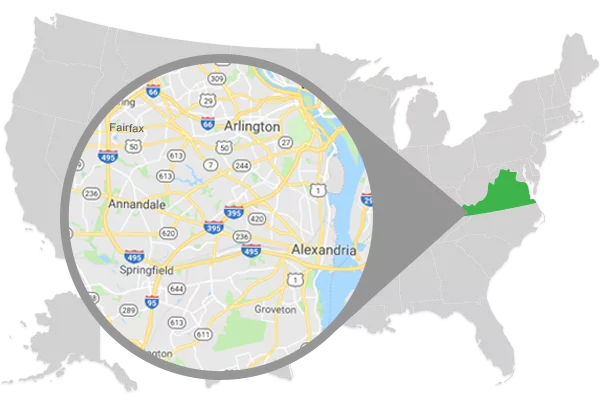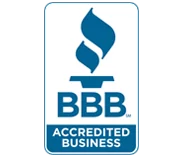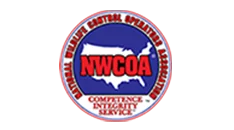
Characteristics of raccoons
Raccoons are small mammals that are native to North America. They vary in size and can weigh up to 23 pounds and be 23 to 36 inches in length. They are not very social creatures and are nocturnal, meaning they sleep during the day and look for food at night. They don’t hibernate, but they sleep a large amount during the winter and even lose half of their body weight during that time. They are known to be quite clean creatures, despite what people may think, and they wash their food and make latrines to use the bathroom. Raccoons are omnivores and eat both vegetation, in addition to some small creatures. Their diets generally include fruits, nuts, corn, persimmons, frogs, fish, insects and bird’s eggs. Sometimes, raccoons will eat out of garbage cans and dumpsters or eat roadkill off the side of the road. Raccoons breed between January to June and produce one litter a year with their litters consisting of three to seven cubs or pups. The babies stay with their mother through the winter then venture out on their own. Raccoons can live for up to 16 years, but tend to only typically live on average for about five years.
Dangers associated with raccoons
Wild animal behavior is often unpredictable and oftentimes raccoons may act dangerously around people. For the most part, raccoons are timid of people and will stay away from them unless they feel threatened. In September 2020, at least four raccoons attacked news crewmembers in front of the White House’s North Lawn. Although the raccoons didn’t seriously injure or harm the individuals involved, the behavior of the animal was addressed and a necessary trapping program was put into place. There was nothing that prompted the attack and it was reported that the area they were in was not frequently visited by raccoons. Regardless of what made the raccoon attack, there are some common guidelines concerning raccoons and people. People shouldn’t try to feed or interact with raccoons and should never attempt to anger them or give them a reason to attack. In addition to raccoons being aggressive, they can also carry harmful diseases.
Diseases carried by raccoons
Raccoons are known to carry infectious diseases such as rabies, leptospirosis, and raccoon roundworm. Rabies is a viral infection passed on by bites and saliva. It affects the nervous system and is fatal for animals. Leptospirosis is a bacterial infection found in the urine of animals and can be passed through water or soil if it gets onto the skin, or on or in the nose, mouth, throat, eyes or is swallowed. Leptospirosis causes animals to become very sick with flu-like symptoms and in some cases die. People can also get the disease, but there are treatments for them. The raccoon roundworm eggs are found in the feces of raccoons in the latrines they build. The eggs are laid in the soil and if the soil is consumed by humans, it can cause lack of muscle control, poor coordination, blindness and coma. If a person, especially a small child consumes the feces or the particles of feces containing the roundworm eggs, this can result in the parasite or pathogen infecting the person consuming it.
Signs of a raccoon on your property
Some signs of raccoons in your attic or on your property are noises in the attic, such as scratching or gnawing, damages or holes in your home where they may enter and exit, tracks and feces or actually seeing them or the nests they build. Raccoon removal in Fairfax and Northern Virginia is an essential process for properties and homes, not just because of the risk or disease or damage to the home, but because raccoons are wild animals and don’t belong in your home. Raccoons, like many other wild animals that tend to invade homes and properties are drawn to a warm shelter and a food source. Raccoons tend to be more frequently spotted in homes in the fall and winter seasons because it is getting chillier outside. As mentioned before, raccoons don’t hibernate but they do spend a long amount of time sleeping during the months that most animals hibernate. They don’t eat much during this time either, so the main reason a raccoon would choose an area such as an attic is because it provides shelter from weather and cold. They can nest in the insulation and keep themselves warm and dry. If you notice a raccoon on your property or in your home, it is crucial it is removed. Raccoon removal in Fairfax and other Northern Virginia counties and cities must be done according to the laws of Virginia and should always be done by a professional.
Raccoon removal in Northern Virginia
Raccoon trapping is the most effective form of raccoon removal in Fairfax and other parts of Northern Virginia. At Summit, we use humane traps that are set using bait that attracts the raccoon and doesn’t allow them to exit after they enter the trap. Raccoon trapping is done in five day increments or blocks of time. Sometimes more than one block of trapping is required to remove all animals, but most animals are removed during the first period of trapping. The first step in trapping is the estimate in which the situation is evaluated and a trapping program is established according to what the best plan is for what is going on. The traps are required by law to be checked every 24 hours at this time any animals that made it into the trap will be taken away and the trap will be reset with new bait. Raccoon removal in Fairfax can sometimes be challenging, because ultimately wild animals do what they want and go where they want, but we do our very best and ensure you are satisfied with the work. If the raccoons are not caught after the five day increment or block of trapping, there are other alternative measures that can be taken to ensure they are safely and humanely removed from your home such as harassment campaigns or the use of one-way exits. Certain conditions must be present for these techniques to be effective.
What to do if you notice a raccoon in your home or on your property?
If you notice raccoons or signs of raccoons on your property, it is important to address the situation and get it taken care of professionally through a raccoon removal or wildlife removal service. During the initial inspection of the property, the technician will find the point of entry of the raccoon or the multiple points of entry. The wildlife removal technician will also find and remove the nest. The damage will be assessed and once the raccoons are all removed, repairs can be made if the homeowner would like.
For more information about raccoons and their habits, take a look at some of our other blogs or our page about raccoons. To schedule a fast, friendly and free estimate for raccoon removal in Fairfax and other surrounding areas or to inquire about the removal of other wild animals like squirrels, opossums or skunks in Northern Virginia, contact us today.












